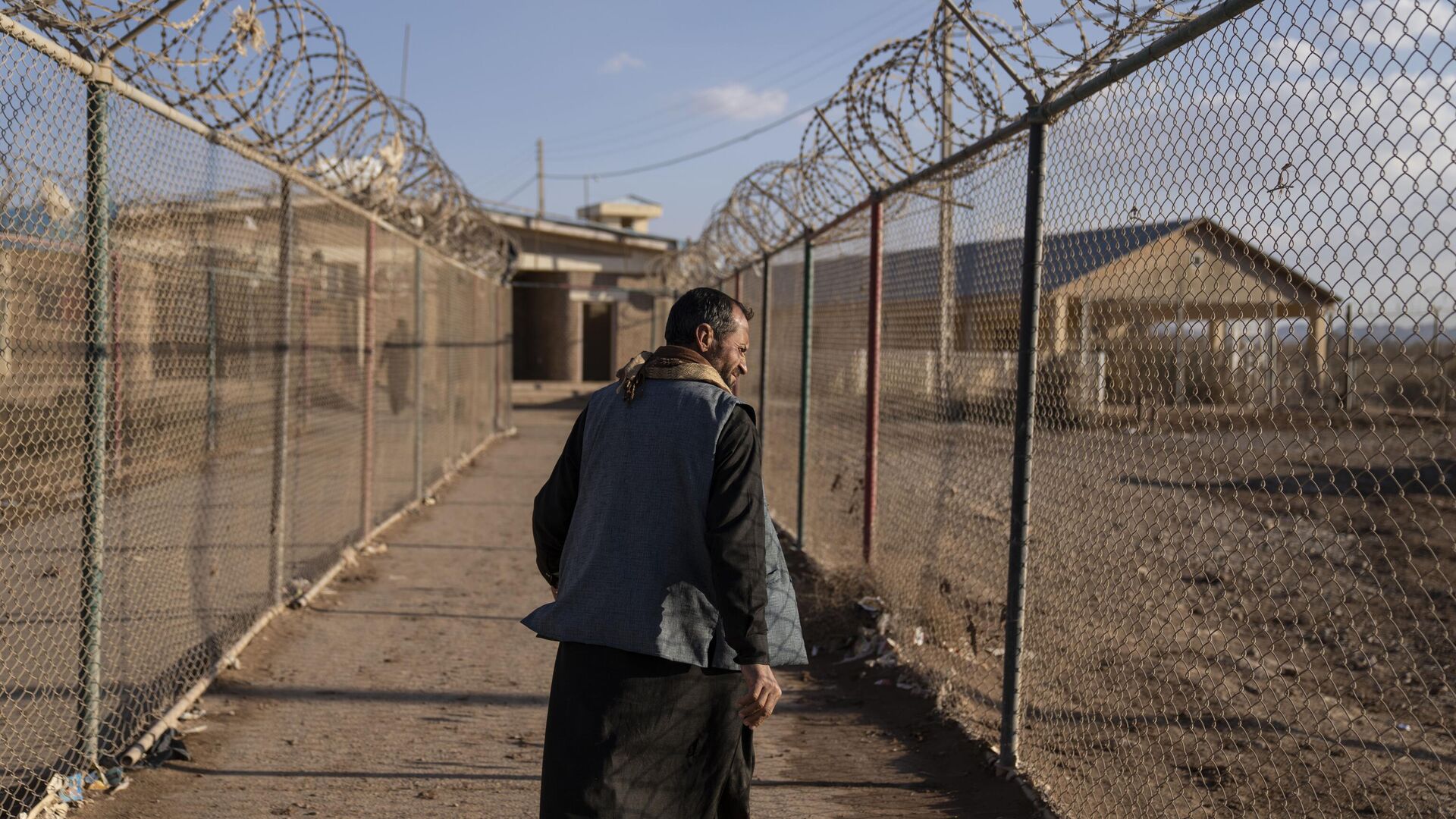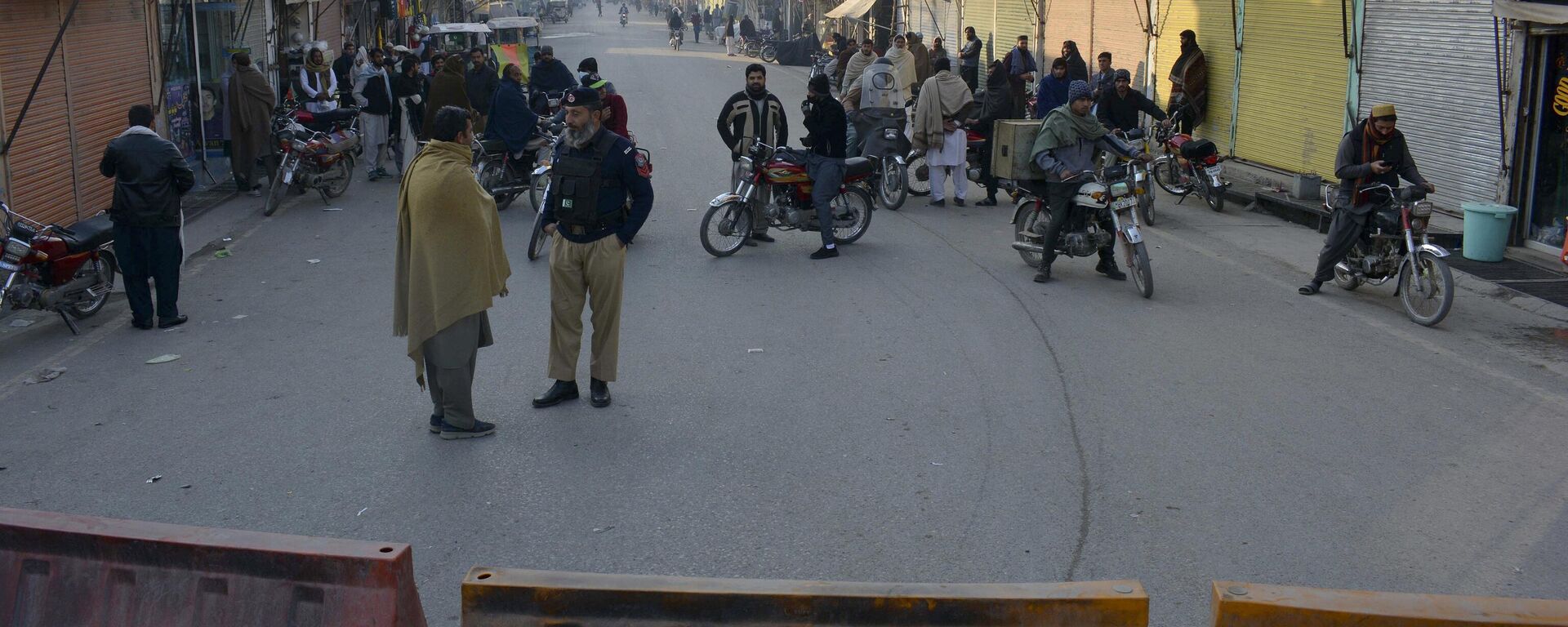https://sputniknews.in/20240824/regional-implications-of-unrecognized-taliban-government-8058662.html
Regional Implications of Unrecognized Taliban Government
Regional Implications of Unrecognized Taliban Government
Sputnik India
More than three years after the Taliban overthrew the Western-backed Afghan government and forced NATO forces to withdraw from Afghanistan, its government is still not recognised by any nation.
2024-08-24T18:37+0530
2024-08-24T18:37+0530
2024-08-24T19:08+0530
sputnik opinion
afghanistan
china
pakistan
taliban
nato
tehreek-e-taliban pakistan (ttp)
terrorism
cross-border terrorism
counter-terrorism
https://cdn1.img.sputniknews.in/img/07e8/02/10/6578580_0:160:3072:1888_1920x0_80_0_0_ae19ac26079e767bc20a856fa88654a2.jpg
The lack of official diplomatic recognition has implications for regional peace and stability, as well as the potential for Afghan territory to be used as a battleground for international power struggles.Road and rail projects, apart from those with China, along others that could enhance Afghanistan's economy and improve the standard of living, are currently stalled.The situation severely impacts both daily life and long-term planning and development in Afghanistan, Retired Brigadier General and Former Executive Director of Bin Qasim City Gwadar, Saeed Dar told Sputnik.Dar and Bilal Hyder Simair, a Senior Research Associate at the Centre for Pakistan and Gulf Studies, stressed the need for a global solution to the current situation in Afghanistan.They said the issue remains critical, with the Taliban's lack of foreign recognition and active militant groups complicating prospects for international engagement, spelling implications for the region and enabling non-state actors to pursue their agendas.The West remains unwilling to recognize the Taliban government, provide a clear roadmap for South Asia's future or cease its proxy actions in the region.He believes, the United States could play a greater role in sabotaging the peaceful economic growth of China by funding and investing in Afghanistan through third parties.He added that nations in Eurasia, particularly China and Russia, will eventually try to improve their relationships with the Afghan Taliban government to secure a strategic location and diminish US influence in the region.Dar argued that joint ventures and economic integration contribute to the overall development and integration of Afghan society, particularly in human resources, which are currently lacking and could negatively impact Afghanistan in the form of militancy and terrorism.*a terrorist organization banned in Russia and other states** terrorist organization banned in Russia
https://sputniknews.in/20240723/pakistani-taliban-enjoys-safe-havens-in-border-regions-infiltration-continues-7888560.html
afghanistan
china
pakistan
Sputnik India
feedback.hindi@sputniknews.com
+74956456601
MIA „Rossiya Segodnya“
2024
Muhammad Sharif
https://cdn1.img.sputniknews.in/img/07e7/0b/05/5257054_0:0:443:444_100x100_80_0_0_b8bd2af32be62a6eecdb4a84c7fd978f.jpg
Muhammad Sharif
https://cdn1.img.sputniknews.in/img/07e7/0b/05/5257054_0:0:443:444_100x100_80_0_0_b8bd2af32be62a6eecdb4a84c7fd978f.jpg
News
en_IN
Sputnik India
feedback.hindi@sputniknews.com
+74956456601
MIA „Rossiya Segodnya“
Sputnik India
feedback.hindi@sputniknews.com
+74956456601
MIA „Rossiya Segodnya“
Muhammad Sharif
https://cdn1.img.sputniknews.in/img/07e7/0b/05/5257054_0:0:443:444_100x100_80_0_0_b8bd2af32be62a6eecdb4a84c7fd978f.jpg
taliban, us, us news, afghanistan, russia, china, cpek
taliban, us, us news, afghanistan, russia, china, cpek
Regional Implications of Unrecognized Taliban Government
18:37 24.08.2024 (Updated: 19:08 24.08.2024) More than three years after the Taliban overthrew the Western-backed Afghan government and forced NATO forces to withdraw from Afghanistan, its government is still not recognised by any nation.
The lack of official diplomatic
recognition has implications for regional peace and stability, as well as the potential for Afghan territory to be used as a
battleground for international power struggles.
Road and rail projects, apart from those with China, along others that could enhance Afghanistan's economy and improve the standard of living, are currently stalled.
The situation severely impacts both daily life and long-term planning and development in Afghanistan, Retired Brigadier General and Former Executive Director of Bin Qasim City Gwadar, Saeed Dar told Sputnik.
“The dynamics of borders and the vested interests of various nations are negatively impacting Afghanistan,” Dar said. “In particular, the safe havens for ISIS* [Islamic State of Iraq and Ash-Sham], TTP* [Tehreek-e-Taliban Pakistan], and other groups opposing China and certain Central Asian countries are causing ongoing tension between the Afghan interim government and these nations.”
Dar and Bilal Hyder Simair, a Senior Research Associate at the Centre for Pakistan and Gulf Studies, stressed the need for a global solution to the current situation in Afghanistan.
They said the issue remains critical, with the Taliban's lack of foreign recognition and active militant groups complicating prospects for international engagement, spelling implications for the region and enabling non-state actors to pursue their agendas.
The West remains unwilling to recognize the Taliban government, provide a clear roadmap for South Asia's future or cease its proxy actions in the region.
The situation, according to Simair, could hinder trade, increase cross-border infiltration of terrorists and their supplies and allow anti-Pakistan elements to regroup, organize and attack Pakistan if relations with the Afghan Taliban government are not restored to their previous state.
He believes, the United States could play a greater role in sabotaging the peaceful economic growth of China by funding and investing in Afghanistan through third parties.
“If the CPEC [China-Pakistan Economic Corridor] route is filled with terrorism, instability, and chaos, and militants can reach Pakistan's Swat, they could easily move further and strike vital import areas beyond the district, forcing China to seek alternatives, if any,” Simair underscored.
He added that nations in Eurasia, particularly China and Russia, will eventually try to
improve their relationships with the Afghan Taliban government to secure a strategic location and
diminish US influence in the region.
Dar argued that joint ventures and economic integration contribute to the overall development and integration of Afghan society, particularly in human resources, which are currently lacking and could negatively impact Afghanistan in the form of militancy and terrorism.
*a terrorist organization banned in Russia and other states
** terrorist organization banned in Russia



